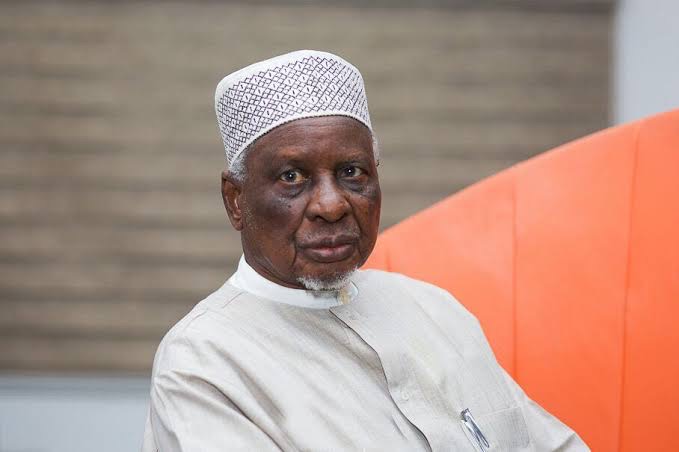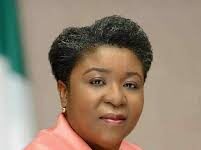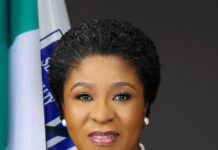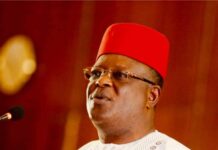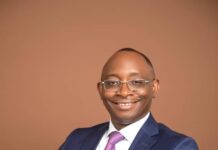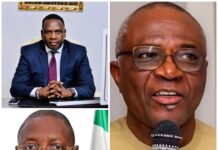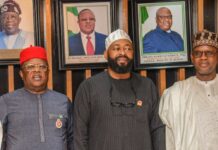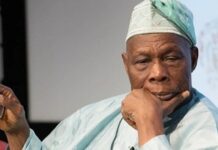Yakasai: We Should Go For Modified Parliamentary System
POLITICS DIGEST – At 94, former aide to President Shehu Shagari, Alhaji Tanko Yakasai, is still very active mentally. The elderstatesman does not hesitate to contribute his views to national issues. In this interview with Deputy Political Editor RAYMOND MORDI, he shares his perspectives about the constitutional changes required by the country to combat its mounting challenges.
What is your impression about the ongoing constitutional review?
It is a very good exercise. I am glad that lawmakers are going around the country to gauge the opinions of Nigerians about the changes they want in the constitution. Let us hope that their decision would reflect the views of the generality of Nigerians.
Some Nigerians have been calling for the adoption of the 1963 Constitution. Are you in support of this idea?
Certainly, we cannot go back to 1963, but I would prefer a modified version of the system which we operated in 1963. The present six geo-political zones should be constituted and designated as regions. The current 36 states should be retained as the third tier of government. The local governments should be abolished and their responsibilities should be transferred to their states and arrangements should be made to fund the regional structure with the local government funds and the balance should be retained by their respective states. I would prefer a president who would be elected through the Electoral College of legislators and a prime minister. Where the president comes from the North, the prime minister should come from the South. Similarly, when the president comes from the South, the prime minister should be from the North. If you recall, the British colonial masters governed the North and South separately for some years before the amalgamation of 1914 that gave birth to Nigeria. This would take cognizance of the distinct identities and peculiarities of the North and South. The point I am making is, even though we currently have 36 states and the Federal Capital Territory (FCT), we still see ourselves as North and South. This arrangement will give each side a sense of belonging.
In your view, what is the main thing about the 1999 Constitution that Nigerians are not happy about?
We should bear in mind that the 1999 Constitution is a replica of the 1979 Constitution. It is instructive to note that the 1979 Constitution was promulgated based on the recommendations of a Constituent Assembly, which represented the views of a cross-section of Nigerians from across the country. Thus, people who are saying that the 1999 Constitution does not reflect the views of Nigerians are wrong. There was a committee set up by General Abdulsalami Abubakar headed by Justice Niki Tobi. The committee, after going around the country, came to the conclusion that Nigerians they met all over the country saw nothing wrong with 1979 Constitution. Therefore, that was why the committee recommended a replica of the 1979 Constitution to the Federal Military Government.
The point people are making is that members of the Constituent Assembly were handpicked and the constitution was not ratified by the people through a referendum, so it is a military creation…
There is no provision for a referendum in Nigeria. If you read the constitution, you will find that the only thing close to a referendum is a plebiscite when it comes to a merger between one part of a state to another state. Another is the creation of a state through constitutional provision. So, if we want to have a referendum, we have to amend the constitution. In the meantime, a referendum is an illegal exercise in Nigeria.
There is a widespread call for restructuring today. In your view, is the North in favour of the idea or against it?
Read Also:
Let me tell, at no time did the North mandate anybody to speak on her behalf. In other words, those saying the North are not in favour of restructuring are only expressing their personal opinion. Similarly, those calling for restructuring in the South are also expressing their personal views. What I know is that those that are agitating for restructuring are yet to define what a restructured Nigeria would look like. I want them to spell it out in black and white, by clearly articulating their position for Nigerians to see. That has not been done yet and until that is done, Nigerians would remain in the dark about what they are talking about.
What are some of the features you want to see in an amended 1999 Constitution or a brand new constitution?
They are many. I would recommend the retention of three tiers of government with some modification. The three-tier should be Federal, Regional and State. The present six geopolitical zones should be constituted and designated as regions. The current 36 states should be retained as the third tier of government. The local governments should be abolished and their responsibilities should be transferred to their states. The office of the prime minister should be created at the national level and the office of the chief minister should be created at the state level. The prime minister who controls the majority in the National Assembly should be nominated by the president subject to confirmation by the state and federal legislature, while the chief minister shall be nominated by the governor subject to confirmation from the chairmen and councillors. The prime minister should recommend members of his cabinet to the president, who will refer the same to the legislature for a vote of confidence. The prime minister and his cabinet shall seize to hold office where the majority of members pass a vote of no confidence in the legislature. The existing revenue allocation formula should be retained to enable Nigerians to have a strong central government that will be capable of handling myriad challenges facing the country. The current policing system should also be retained. I do not support the creation of state police because of its expensive nature, as well as problems of partisan control and political manipulation. More policemen should be recruited. At present, we have 36 states, 774 Local Governments with an average of 12 wards per local government. A conservative estimate of 278,640 personnel, excluding officer corps, will be required to maintain law and order in the 36 states across the country with at least 30 police officers per ward, with attendant requirements of financial provision for salaries and allowances, accommodation (office and residential), capacity building (training and re-training of staff), transportation (which includes the procurement of vehicles), uniforms (beret, baton, boots and other accessories) and overhead costs (which includes vehicle fuelling, maintenance and services and hiring of casual staff). In addition, provision must be made to acquire sophisticated weapons to enable them to deal with the current banditry and insurgency such as Boko Haram, Indigenous People of Biafra (IPOB), farmers/herders conflict, kidnapping and other security challenges. In addition, the state electoral commission (SIEC) should be abolished and all elections and election matters should be handled by INEC.
Why is tension increasing in the country in recent times?
To be honest with, I believe the media is responsible for the tension. We have 36 states and the FCT in Nigeria all still operating; we have 774 local governments with chairmen and councillors and they are all working. But, the media is giving the impression that Nigeria is a failed state. In a failed state, government institutions do not function.
Sir, the question refers to tension in the land; it did not say the country is a failed state…
Even the tension you are talking about, it is not all over the country. You see, in the United States of America (USA), people are killed every day, but nobody says there is tension in America. The problem we have in Nigeria is that of poverty. Young Nigerians complete different levels of education every year, from primary school to university, but there is no job for them. They need to survive; they need to eat.

